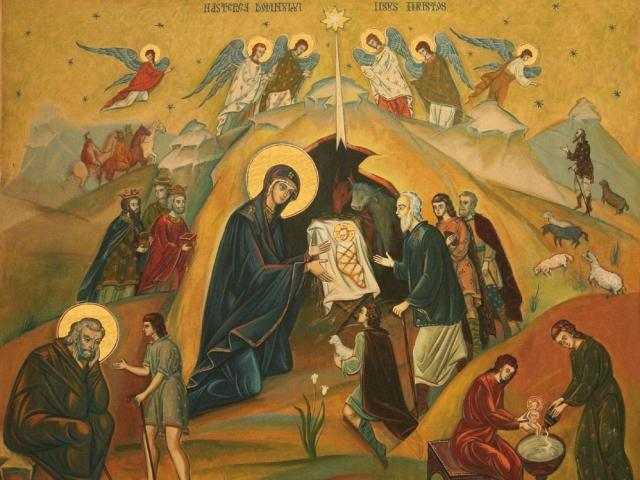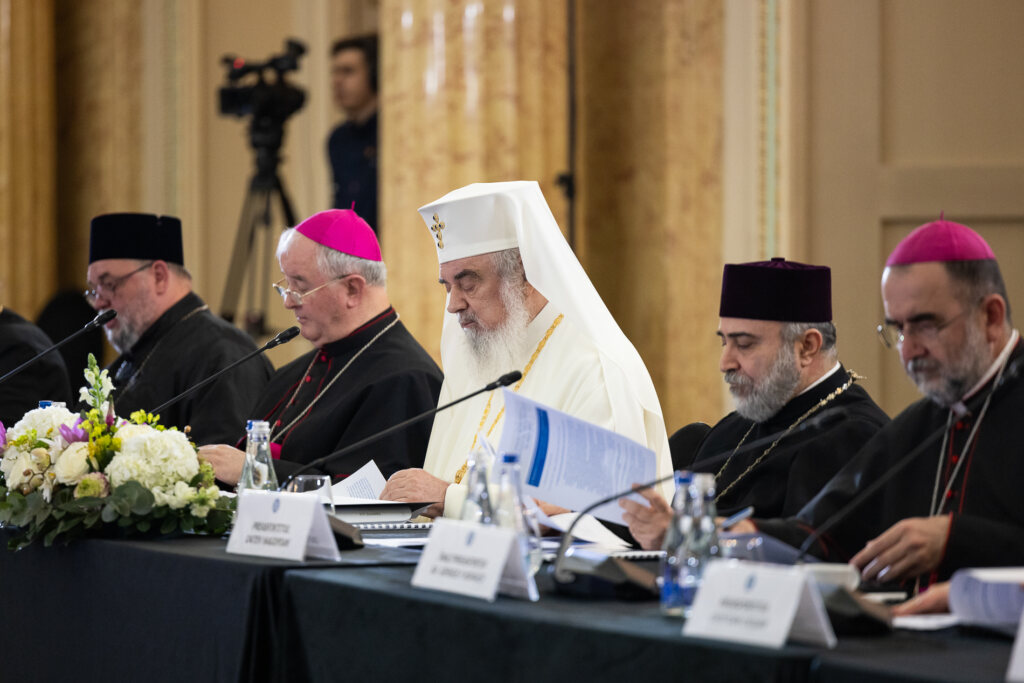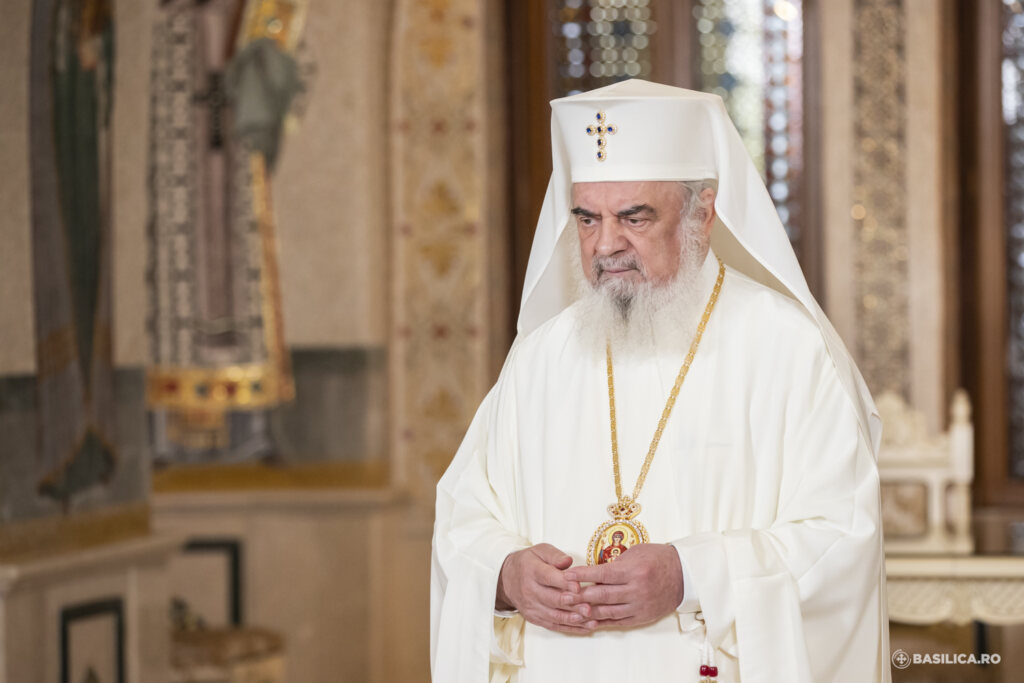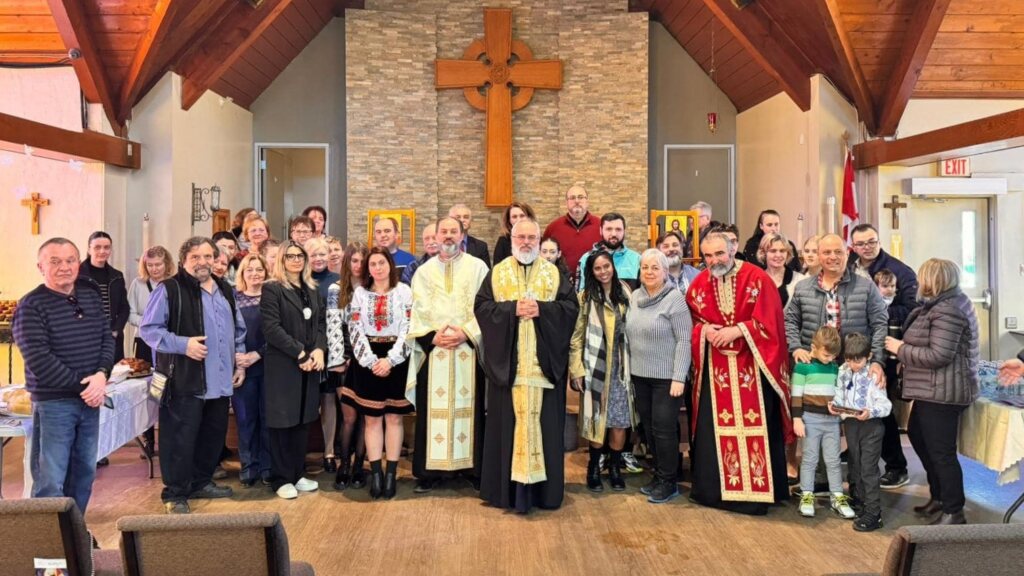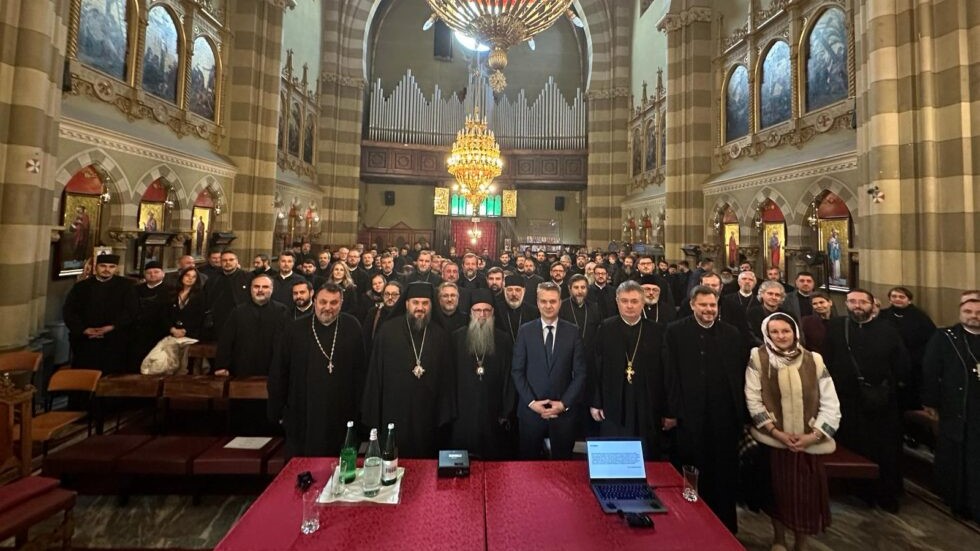Today, 14 November 2012, the Christmas Advent begins, which will last till Christmas day, 24 December too (day of strict fasting). We learn from the church regulations that this year the eve of the Advent was on 13 November, not on 14, because it was on a Wednesday, which is a fasting day in the Orthodox Church. Thus, this year the Christmas Advent begins on 14 November, not on 15 as the regulations of other years when the day of 15th of November is not preceded by a fasting day, namely Wednesday or Friday. This year the Advent lasts from today, 14 November, till Monday, 24 December, with strict fasting on the Eve of Christmas unlike the other fasting days of the Advent (fasting is over after the Christmas Divine Liturgy, on 25 December).
The eve of the Christmas is a stricter fasting day than the other days. No food is allowed till the 9th hour (15.00 hours), when in certain parts of the world boiled wheat mixed with fruit and honey is eaten, in the memory of the fasting of Saint Daniel the Prophet and of the three young men of Babilon. In some other parts of the world no food is allowed till the morning star appears, which reminds of the star that announced the magi of the birth of the Saviour. This fasting also reminds of the fasting the catechumens used to observe on the evening of this day, when they received the Christian baptism and then the first Holy Communion at the Divine Liturgy celebrated at the time for the purpose. (“General Liturgics”, Rev. Prof. Dr. Ene Braniște, EIMBOR, 1985).
The Advent reminds of the long fasting of the patriarchs and righteous of the Old Testament while waiting for Messiah – the Redeemer. According to some interpreters of the Orthodox rite, the 40 days of fasting reminds of Moses’ fasting on Sinai Mount, while waiting to receive the words of God, the Decalogue (the 10 commandments) written on the stone Tablets of the Law.
The first mention of this period of alimentary and physical restriction comes from the 4th – 5th centuries, from the Blessed Augustin and from Bishop Leon the Great of Rome, who delivered nine speeches on this fasting, named “the fasting of the tenth month”. The Advent is dedicated first of all to the feast of the Nativity of Jesus Christ, our Lord and Saviour.
In the beginning, not all the Christians fasted in the same way and the same number of days. For example, some of them fasted only seven days, and some other ones six weeks; some of them had a slight fasting and some other ones a strict one. But the local council of Constantinople, held in 1166 (in the time of Patriarch Luca Chrysoverghi) standardized the duration of the Advent of the Nativity of the Lord in the Orthodox Church, deciding that all faithful should fast for 40 days, beginning with 15 November.
As any fasting, it should represent, first of all a restriction from the bad things that move us away from God and people. From the point of view of food, the Advent is slighter than the Lent, with fish, oil and wine allowed. Fish, fish dishes, wine and oil is allowed every Saturday and Sunday, from 21 November – 16 December too. These days are usually marked in the Christian Orthodox Calendar with either “fish allowed” or with the symbol of a fish.
According to father Ene Braniște (“General Liturgics”), this fasting is of medium severity, similar to that of the Saints Apostles. According to the regulations, fasting is observed in monasteries on Mondays, Wednesdays and Fridays till the 9th hour (around 15.00 – 16.00 hours), when dried food or boiled vegetables are eaten, but with no oil; on Tuesdays and Thursdays boiled plants are eaten, cooked in oil, and wine is drunk, while Saturdays and Sundays fish is allowed (but for the period from 20 to 25 December, when fasting is more serious).
If Monday, Tuesday or Thursday a great saint is celebrated, fish is allowed; and Wednesday and Friday, wine and oil, but with only one meal a day. If Wednesday or Friday a great saint or the saint patron of a church is celebrated then oil, fish and wine are allowed.
On the last day of the Christmas Advent (24 December), named the Eve of Christmas, the faithful are waiting for the priest to bring them the news of the Nativity of the Saviour, celebrating in this way the great feast to come.
